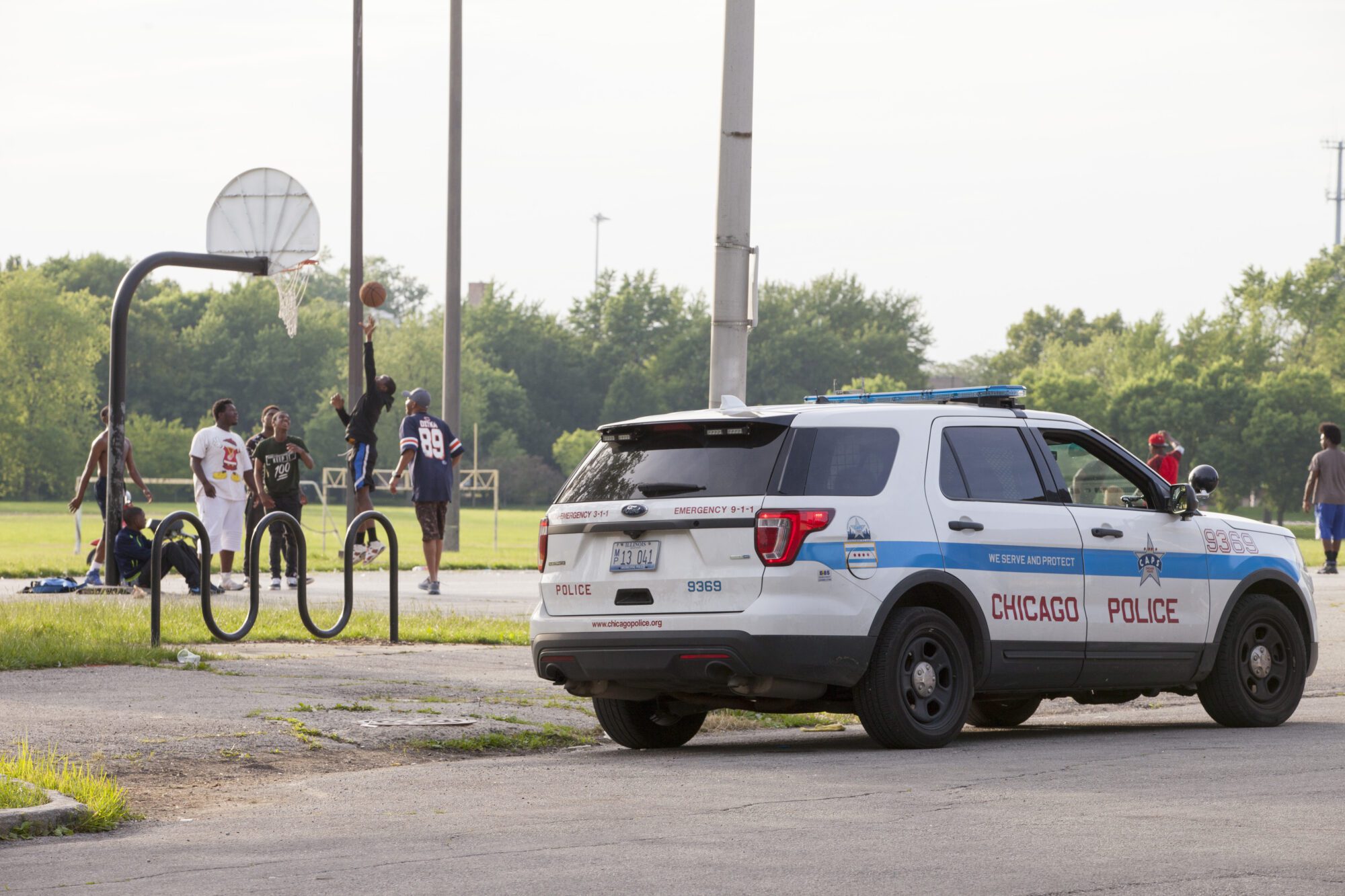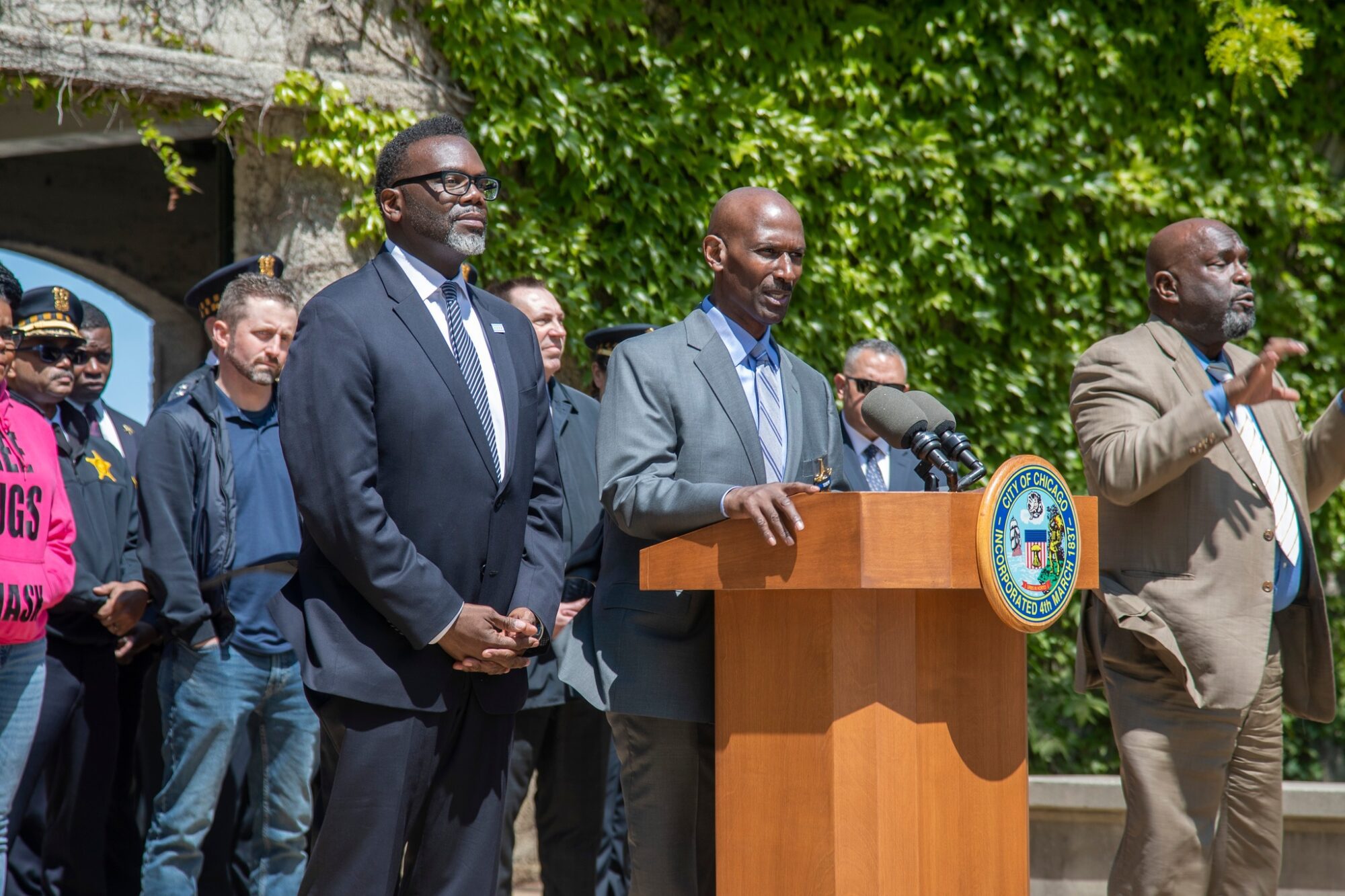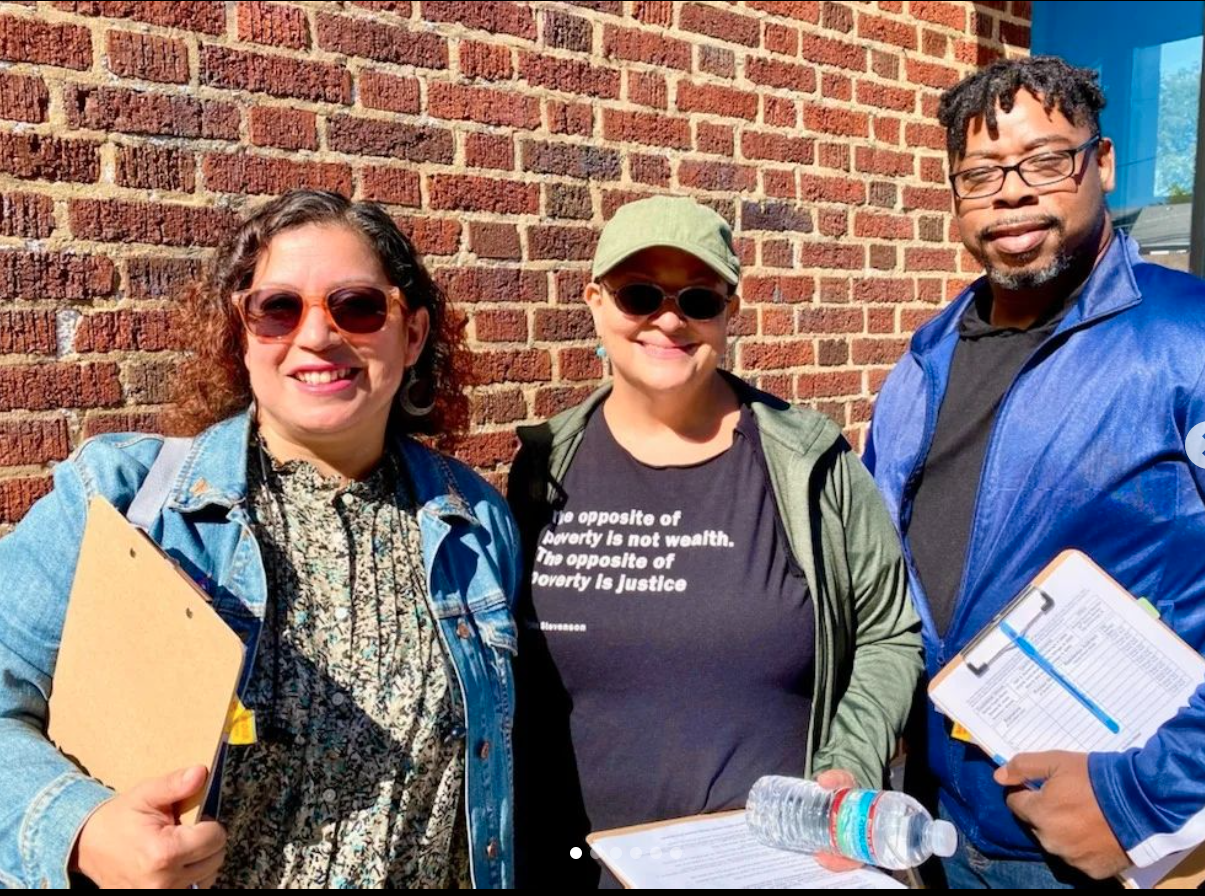Behind Dexter Reed’s Police Killing, a Surge in Traffic Stops on Chicago’s West Side
The police district where Reed was pulled over has the most traffic stops in Chicago. Here’s why activists say that matters.
| April 15, 2024
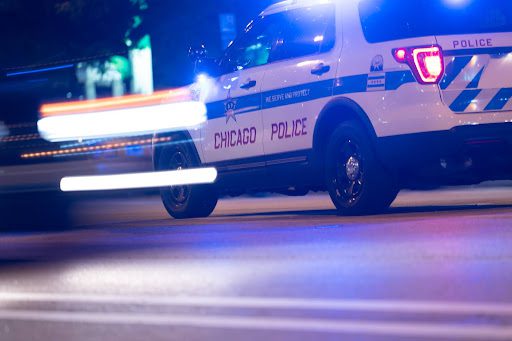
This article was produced as a collaboration between Block Club Chicago, a nonprofit newsroom focused on Chicago’s neighborhoods, and Bolts, a nonprofit publication that covers criminal justice and voting rights in local governments.
It started as a traffic stop for an alleged seatbelt violation. It escalated to a deadly encounter within seconds.
Since the release of body cam footage showing plainclothes police killing Dexter Reed in Chicago, loved ones and activists have demanded to know why the 26-year-old was stopped, and how a simple traffic stop left Reed dead, an officer wounded and cops firing nearly 100 shots in a residential neighborhood.
The traffic stop is part of a pattern that has increasingly targeted Black neighborhoods in recent years and activists say may violate people’s rights. The traffic stops have been called “the new stop-and-frisk.”
And they’ve been particularly aggressive on the city’s West Side, where Reed was stopped and killed. Activists have warned for years that these traffic stops can spark volatile encounters.
In fact, police pull over more Chicagoans in the Harrison (11th) Police District, where Reed was pulled over, than in any other district in the city, according to a Block Club Chicago analysis of police data. The vast majority of those stops don’t lead to tickets.
One-tenth of all Chicago traffic stops happened in that district—averaging more than 154 stops per day—even though the area accounts for just 3 percent of Chicago’s population, according to a report by Impact for Equity. About 96 percent of people living in the district are Black or Latino, according to the report.
“The strategy ends up creating a dangerous situation for everyone rather than contributing to any improvement of public safety in Chicago, said Amy Thompson, staff counsel for Impact for Equity. “Pretextual stops are creating danger, not finding danger.”
She thinks that Reed’s arrest illustrates that danger. “Five officers rushed out in plainclothes for a seat belt violation. It clearly was an attempt to fish for crime,” she said.
Chicago’s Civilian Office of Police Accountability, the oversight agency that investigates when officers shoot someone, raised concerns over the reason officers gave for stopping Reed. Investigators are uncertain how officers would have seen Reed wasn’t wearing a seat belt given their positions and the fact Reed’s SUV had tinted windows, chief administrator Andrea Kersten wrote in a letter to Police Supt. Larry Snelling, obtained through a Freedom of Information Act request.
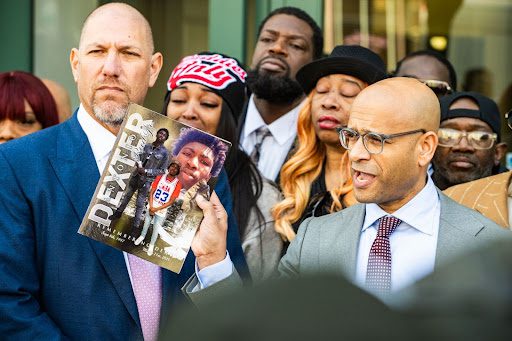
Newly released documents show the officers involved in the fatal shootout were being investigated for several other traffic stops that drivers said were unwarranted.
Police Superintendent Larry Snelling, who became Chicago’s top cop last year, has indicated the number of traffic stops is a problem, too. He has reversed course from previous administrations by pledging to reduce traffic stops. He also has committed to routinely training officers to ensure they act based on “reasonable articulable suspicion or probable cause,” he told neighbors at a town hall the day before footage of Reed’s killing was released.
“People have been sounding the alarm that the massive escalation in traffic stops would lead to more violent interactions because of the way this strategy is being conducted. These stops have become so routine and they are so ineffective that we knew we would have some tragedy like this occur as a result,” said Ed Yohnka, spokesperson of the Illinois ACLU. “The stops take place in this fashion where guns are drawn and there’s an immediate escalation of things.”
How stops surged after Chicago funneled more cops to traffic stops
Traffic stops in Black neighborhoods surged after a 2015 ACLU report found stop-and-frisk encounters were frequently baseless, targeted Black and Latino Chicagoans and routinely violated people’s rights. After the city agreed to reform the practice, Chicago police turned to traffic stops, Yohnka said.
The number of traffic stops Chicago Police reported to state watchdogs surged from under 100,000 in 2015 to nearly 600,000 in 2019, according to the Illinois Traffic and Pedestrian Stop Study. Documented stops dipped during the first years of the pandemic, but in 2023, Chicago police logged its second-highest number of stops in two decades, according to the Impact for Equity report. Black drivers are stopped up to seven times more often than white drivers, the state report showed. There are few traffic stops in districts where many police officers live while cops disproportionately stop drivers in Black neighborhoods.
But the study vastly underestimates Chicago police traffic stops. A Block Club investigation found hundreds of thousands of traffic stops annually that the department did not report to the state, in violation of a transparency law meant to address patterns of racial bias in police encounters.
Chicago police rely heavily on these encounters to search for contraband like illegal guns and drugs, stopping and arresting thousands more Black drivers than they report to oversight agencies, a Block Club investigation found. Officers make millions of stops but find guns in fewer than one of every 150 stops, Block Club and Injustice Watch found.
“It is clear that this kind of stop has nothing to do with traffic safety. It is all about trying to search for guns and drugs,” Yohnka said. “If your expectation is to try to find a weapon, you look at that situation much differently than someone who rolled through a stop sign.”
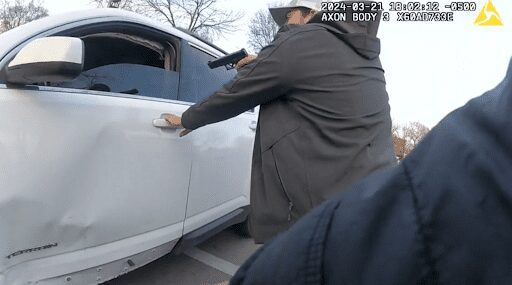
Chicago police have funneled resources and manpower supposedly earmarked for other public safety strategies to make more traffic stops and scale up gun arrests, Bolts and Block Club have found.
The signature project of David Brown, Snelling’s predecessor, was a community policing unit purportedly launched to build trust between South and West Side residents and police, solve local problems and tackle crime at its root. By 2021, it was the largest unit in the department with over 800 officers.
But an analysis of dispatch records by Bolts showed those officers rarely did those positive community engagement activities. Instead, they were deployed primarily on the South and West sides as a roving strike team and the central enforcer of the growing traffic stop program. The community policing team stopped and searched more drivers than any other police unit, amounting to nearly one-third of the mountain of traffic stops in 2021, data shows.
The community team was dismantled amid outcry from watchdogs and legal turmoil from drivers and officers who complained of an illegal quota system that discriminated against Black Chicagoans.
An ongoing class action lawsuit filed by Black and Latino drivers and the ACLU alleges the traffic stop strategy—and Brown’s community team in particular—flooded Black neighborhoods with traffic stops as a pretext to search drivers without their consent. The complaint references emails sent by then-Deputy Superintendent Ernest Cato III that ordered commanders to “utilize traffic stops to address violence.”
A former lieutenant on the community team sued the city in 2021, claiming leadership retaliated against him for refusing to require officers under his command to conduct at least 10 stops daily. Though the community team was disbanded, Snelling reinstated it under a new name.
“Every officer in those units is not one that’s in the community, talking to neighbors and trying to find solutions,” Yohnka said. “Our clients described traffic stops where officers approach the car with their hand on their gun. People are being singled out and targeted for their race. It points out the danger of these stops, the inefficiency of the stops and the tragedy of the situation.”
Officers who are supposed to respond to 911 calls have also been steered toward traffic stops, a Block Club investigation found.
Hundreds of officers each day are assigned to rapid response duty, answering top-priority 911 calls and reducing long wait times that have become a pressing concern for many communities, according to police directives. It is supposed to allow beat officers to stay on their local patrols and build community relationships rather than respond to emergency calls.
But dispatch data shows rapid response officers rarely handle 911 calls. Instead, the majority of those officers are dedicated to traffic stops, the data shows.
“That’s a lot of manpower,” community organizer Arewa Winters said. “While we have all these issues going on everywhere, and you’re pulling people over with no good outcomes. Is that a practical use of manpower? Could you be somewhere else doing something else?”
A promise to reduce traffic stops: ‘We have to unlearn old things’
Snelling, the city’s first superintendent chosen under a new community oversight commission, has broken from past leadership by promising to address the harms caused by the mass use of traffic stops.
Former Supt. Brown denied the existence of racially discriminatory stops and quotas and rejected evidence that stops were used to fish for gun possession cases.
At an April community hearing, Snelling acknowledged how traffic stops are part of the department’s strategy for dealing with guns, touting the department has scaled back on traffic stops while still increasing gun arrests. Snelling plans to continue to reduce traffic stops by training officers on different tactics, he said.
“We have to train the officers out of that and bring them into something new,” Snelling said. “In order to get them to learn new things, we have to have them unlearn the old things.”
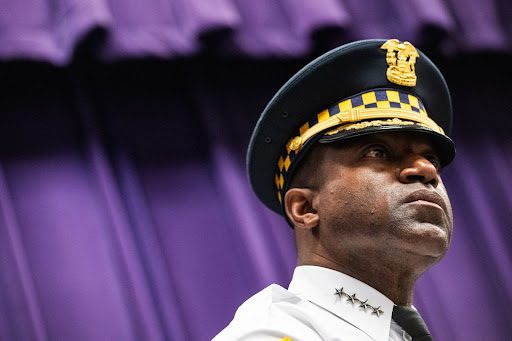
Snelling said Chicago police have conducted 46,000 fewer stops in 2024 compared to the first quarter of last year. Police spokesperson Thomas Ahern declined to share a source for how the department tracked that reduction in stops, saying the statistic came from “computer data.”
To address the long-term issues with traffic stops, Snelling committed to bringing traffic stops under the supervision of the federal consent decree so the reductions “will be long lasting after I am gone,” he said.
But many are skeptical and urge the superintendent to take more immediate action. Only 6 percent of the requirements from the consent decree have been met in the five years since it took effect, according to a recent report.
“Whether or not Snelling views traffic stops differently, in order for community to have clarity on what their interactions with law enforcement will be, and even so police has clarity on what they can and cannot do, there needs to be a formal policy on these pretextual stops,” said Thompson of Impact for Equity.
When the goal is to investigate unrelated crime, officers are motivated to escalate a traffic stop to search for contraband, not deescalate the situation, Winters said. The tactic widely used in Black neighborhoods thrusts hundreds of thousands of Chicagoans each day into a high-risk situation that could turn lethal at any moment.
Investigators concluded Reed shot at officers first. But the focus on who fired first distracts from the bigger picture, Winters said: Neither the officers nor Reed were in a potentially deadly situation until police pulled Reed over.
“The conversation needs to begin with what the police started with and how they approached that young man.”
It is reminiscent of when officers killed Philando Castile during a traffic stop near Minneapolis in 2016, Winters said. Officers used a broken taillight as a pretext to stop Castile and investigate him for an unrelated armed robbery nearby, an investigation showed. Within a minute of the encounter, officers fired at Castile while his girlfriend and her 4-year-old child were in the car.
That same year, Winters’ nephew Pierre Loury was killed after officers pulled over a car he was in to investigate a shooting earlier that day. After the 16-year-old tried to run away, an officer shot Loury after the teen climbed a fence.
“I know so many other families who have lost loved ones to police. We’re retraumatized, we’re frustrated, we’re angry, we’re hurt,” Winters said. “It’s truly overwhelming. But at the same time, we have to fight. We have to push back on the narratives that they try to spin.”
Stay up-to-date
Support us
Bolts is a non-profit newsroom that relies on donations, and it takes resources to produce this work. If you appreciate our value, become a monthly donor or make a contribution.


